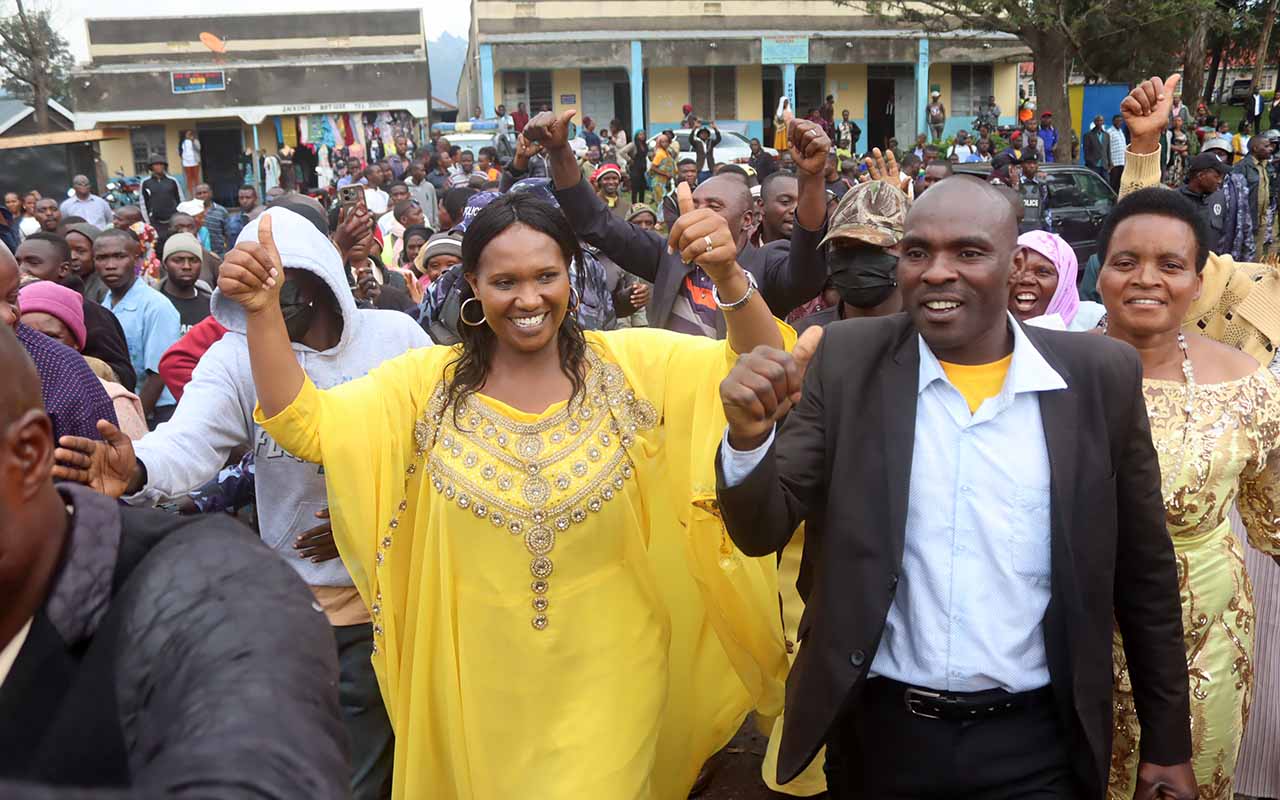Prime
Keep out of matters you don’t understand, Museveni tells EU

President Museveni (right) with EU envoys after a meeting at State House Entebbe yesterday. PHOTO | PPU
What you need to know:
- The President made the remarks yesterday at a meeting with European Union envoys at State House Entebbe. The envoys were led by Mr Attilio Pacifici.
Uganda and the European Union are not adversaries and should focus on strengthening their shared goals, President Museveni has said.
The President made the remarks yesterday at a meeting with European Union envoys at State House Entebbe. The envoys were led by Mr Attilio Pacifici.
Others were Mr Per Lindgarde of Sweden, Mr William Carlos (Ireland), Mr Rudi Veestraeten (Belgium), Mr Jules Armand Ania Mbossou (France), Mr Nicolaj Itejberg Peterson (Denmark), Mr Massimiliano Mazzanti (Italy), Mr Mathias Schauer (Germany), Ms Karin Boven (Netherlands) and Dr Roswitha Kremser of Austria.
“For us we don’t see you as enemies, remove all the diversions and concentrate on the shared goals and help one another for the prosperity of our people,” Mr Museveni said
The President, who reminded the envoys of the political history of Africa in general and Uganda in particular, also discussed with them a wide range of issues covering political, social and economic sectors.
Mr Museveni, however, cautioned the envoys against involvement in matters that they are not conversant with, something that could have “serious consequences.”
“By involving yourselves in matters that you don’t understand, even if you do understand, you should not get involved because this kind of misconduct can lead to many serious consequences and suffering of the people like it happened in some African countries,” he said.
Mr Museveni further advised the envoys to always consult with government officials in case they want clarification on any issues. He promised to share with the envoys a report on the investigations being carried out by security agencies following the November 18-19, 2020 riots in Kampala and other urban areas where lives were lost.
This comes a week after the European Union (EU) Parliament recommended sanctions against Ugandan individuals and organisations they claim are responsible for human rights violations during the recent General Election, which it said was not democratic and transparent.
EU resolution
In its statement issued last Thursday, the EU Parliament resolved that “…sanctions against individuals and organisations responsible for human rights violations in Uganda must be adopted at EU level under the new EU (European Union) human rights sanction mechanism, the so-called EU Magnitsky Act.”
The resolution was endorsed by 632 votes, with only 15 against and 48 abstentions. The Uganda government has since written to EU Parliament, describing the accusations as baseless.
In a meeting with Mr Museveni yesterday, the EU envoys appreciated the cordial and friendly relationship existing between the European Union and Uganda. Mr Lindgarde of Sweden expressed their readiness to continue supporting development programmes in Uganda.
The meeting was attended by Prime Minister Dr Ruhakana Rugunda, Foreign Affairs minister Sam Kutesa and other senior government officials.
Background
Last week, the European Union (EU) Parliament recommended sanctions against Ugandan individuals and organisations they claim are responsible for human rights violations during the recent General Election, which it said was not democratic and transparent. The resolution were based on human rights violations that happened during the recently concluded elections.



